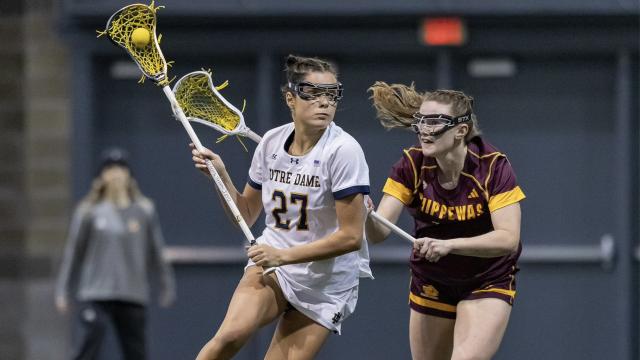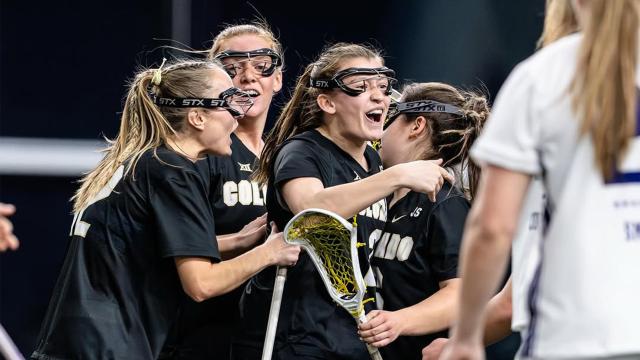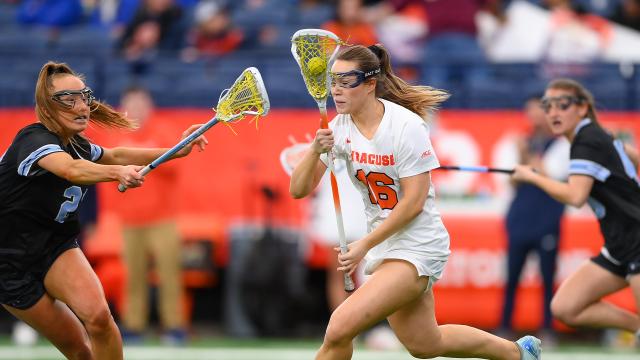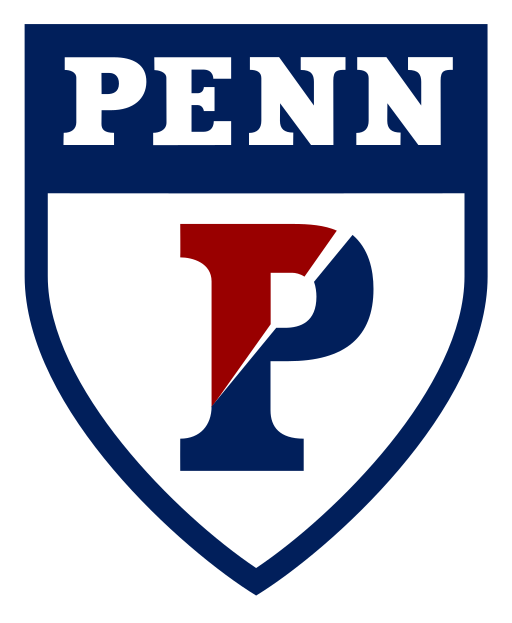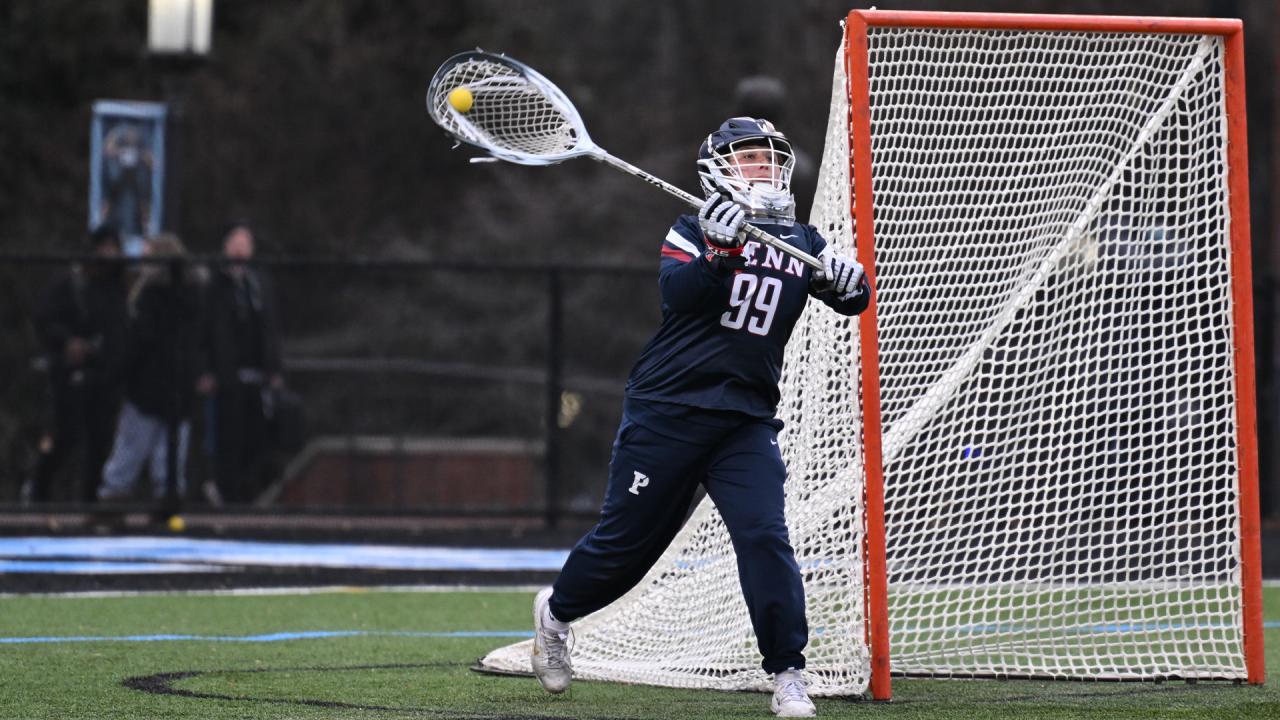
Super Sophs: Penn's Orly Sedransk
As a redshirt freshman, Chloe Humphrey set college lacrosse on fire — leading North Carolina to a national championship while becoming the first freshman to win the Tewaaraton Award as the nation's top player.
She wasn't the only rookie to make her presence felt last season. USA Lacrosse Magazine caught up with five true freshmen from last season poised to continue their stories in our Super Sophs series.
Super Sophs
- October 2: North Carolina's Eliza Osburn
- October 3: Navy's Alyssa Chung
- October 6: Florida's Clark Hamilton
- October 7: Penn's Orly Sedransk
- October 8: North Carolina's Kate Levy
ORLY SEDRANSK
Goalie
Freshman stats: .490SV%, 9.99GAA
Postseason honors: Ivy League Rookie of the Year, Ivy League Goalkeeper of the Year, First-Team All-Ivy
Most programs experienced roster upheavals ahead of the 2025 campaign, leaving open spots for freshman attackers, midfielders and defenders to make immediate impacts.
Goalies are trickier. There can only be one at a time. Penn graduated Kelly Van Hoessen, so there was an open competition between then-freshman Orly Sedransk and then-junior Caitlin Noack, albeit a friendly one. (“She’s one of my best friends,” Sedransk said.)
Sedransk came in with a lengthy brag sheet, considered the top goalie in the Class of 2024 by Inside Lacrosse and a three-time member of USA Select teams (2021, 2022, 2023).
But Sedransk struggled with the adjustment to Division I lacrosse at first.
“I treated every practice like a tryout,” Sedransk said. “I had goals to play and make a difference, but when I got there, it was a rocky start. The main feedback I got from coaches in the fall was that I needed to be more consistent. I’d have some amazing days at practice and then some average days. They wanted to see me perform my best every day and earn the trust of the defense.”
To do so, coaches wanted her to take a more proactive approach — rather than waiting for the ball to reach her, as if she were playing on her heels.
“When I got to campus, coaches wanted me to become more explosive — not necessarily going straight out to the ball but having more of an attacking mindset,” she said.
Sedransk also heard she needed to become more vocal, another shift from the expectations placed on her in high school.
“I didn't play with a particularly high-level defense, so we didn't communicate a ton,” she said. “I didn't have to yell so much because the other girls weren't talking so much. I was used to communicating quietly. At Penn, I needed to project a lot more, speak up a lot more, and contribute in huddles, which was a big difference for me.”
Sedransk made the shift, won the starting job and earned the confidence of her teammates. But confidence in herself? That was a work in progress, even when the season started.
“I was extremely nervous heading into games, and my coaches would consistently reassure me that I would not be on the field if they didn't trust me,” Sedransk said. “That was big — knowing that I had the trust of my teammates and coaches. Of course, there’s pressure being the last line of defense, especially as a freshman, but I just looked at it as, ‘No one knows me. No one knows what to expect. I’m going to give it my all and have nothing to lose.’ That’s what propelled me.”
Sedransk had her teammates' backs — literally. She led the Ivy League and all Division I freshmen in save percentage (.490) en route to earning the league’s Rookie and Goalkeeper of the Year awards. But the postseason had its ups and downs.
The down? A one-goal loss to eventual tournament champion Yale in the Ivy League semifinal. It became fuel for the fall.
“We have unfinished business in that sense,” Sedransk said. “I came to Penn not only to play with my best friends, have amazing coaches and for the academics. We want to win Ivy League championships, so there’s definitely going to be that itch.”
But Penn proved resilient. Sedransk called the team’s NCAA tournament second-round overtime win over Maryland the season highlight. And while they left the Ivy League tournament stone unturned in 2025, the run to the NCAA quarterfinals is proof positive that the Quakers can win under pressure.
“I learned how important composure is when you get into overtime games in the NCAA tournament, and not many freshmen get that experience,” Sedransk said. “Those games test your limit, so I learned a lot last year, and I’m excited to get back to it.”
Sedransk never actually left it. She played in college leagues all summer, trained with her goalie coach and hit the gym, hoping to bring the explosive style she learned last year into fall ball immediately.
“I did a lot of hand-eye work, too,” Sedransk said. “The shots are faster in college, and the step-downs are something no one did much of in high school. I would find myself getting tense on the step-down shots. And I got a lot of refreshers on skills from my goalie coach.”
Come May, Sedransk hopes to hit refresh on the Ivy League tournament page and see a celebratory photo starring the Quakers.
Beth Ann Mayer
Beth Ann Mayer is a Long Island-based writer. She joined USA Lacrosse in 2022 after freelancing for Inside Lacrosse for five years. She first began covering the game as a student at Syracuse. When she's not writing, you can find her wrangling her husband, two children and surplus of pets.
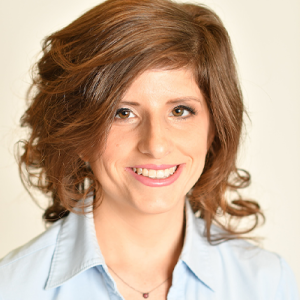
Related Articles
